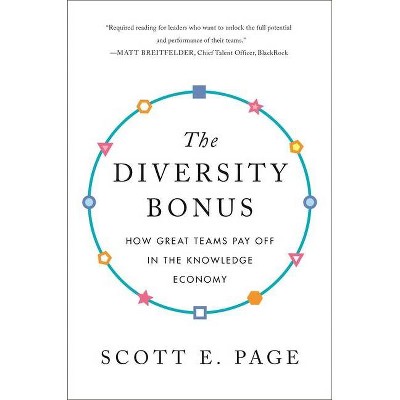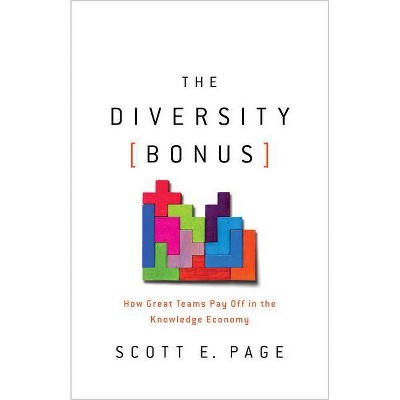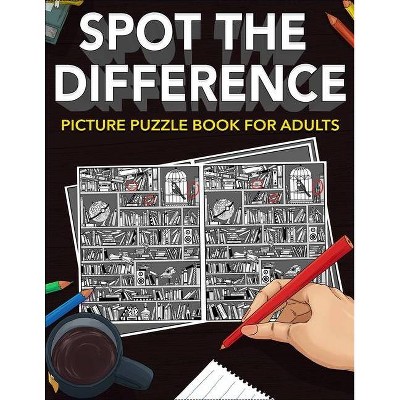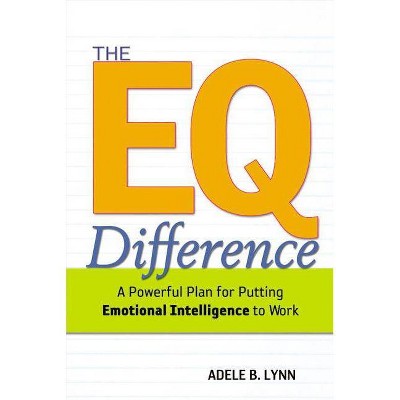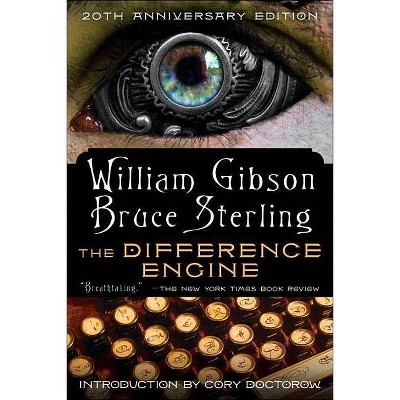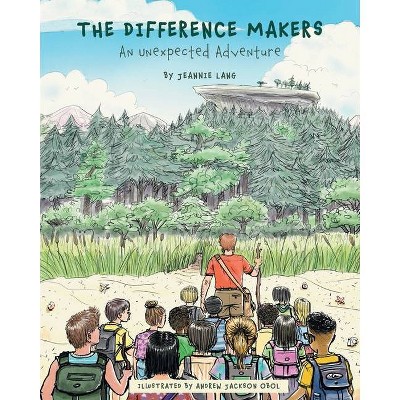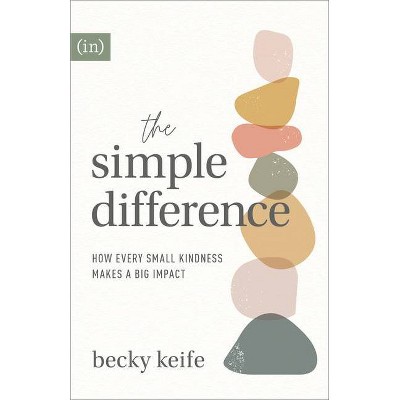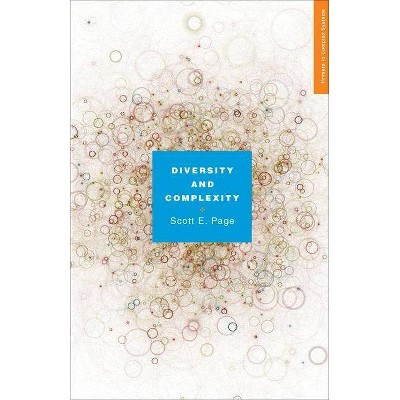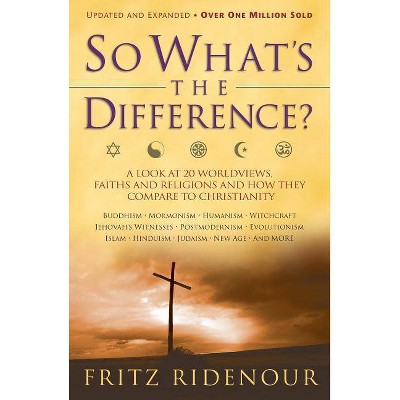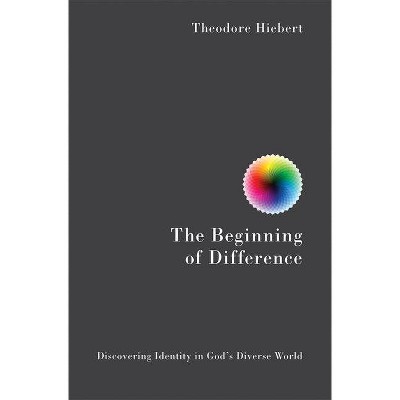The Difference - by Scott Page (Paperback)
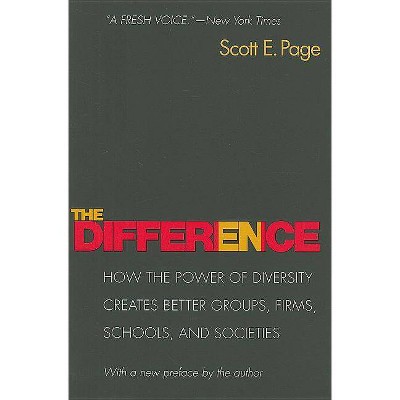
Similar Products
Products of same category from the store
AllProduct info
<p/><br></br><p><b> Book Synopsis </b></p></br></br><p>In this landmark book, Scott Page redefines the way we understand ourselves in relation to one another. <i>The Difference</i> is about how we think in groups--and how our collective wisdom exceeds the sum of its parts. Why can teams of people find better solutions than brilliant individuals working alone? And why are the best group decisions and predictions those that draw upon the very qualities that make each of us unique? The answers lie in diversity--not what we look like outside, but what we look like within, our distinct tools and abilities. <p/><br> <i>The Difference</i> reveals that progress and innovation may depend less on lone thinkers with enormous IQs than on diverse people working together and capitalizing on their individuality. Page shows how groups that display a range of perspectives outperform groups of like-minded experts. Diversity yields superior outcomes, and Page proves it using his own cutting-edge research. Moving beyond the politics that cloud standard debates about diversity, he explains why difference beats out homogeneity, whether you're talking about citizens in a democracy or scientists in the laboratory. He examines practical ways to apply diversity's logic to a host of problems, and along the way offers fascinating and surprising examples, from the redesign of the Chicago El to the truth about where we store our ketchup. <p/> Page changes the way we understand diversity--how to harness its untapped potential, how to understand and avoid its traps, and how we can leverage our differences for the benefit of all.</p><p/><br></br><p><b> From the Back Cover </b></p></br></br><p>"Scott Page has brought to our attention a practically important proposition: diversity of viewpoints is of the greatest importance in solving the problems that face us individually and collectively. Diversity among a group of problem solvers is more important than individual excellence. Page's exposition remarkably combines lightness and breadth of knowledge with rigor and evidence."<b>--Kenneth J. Arrow, Nobel Prize-winning economist</b></p><p>"Scott Page knows more about diversity than anyone anywhere. In <i>The Difference</i>, he shows why diversity matters, how it leads to better outcomes, and most importantly why achieving the significant benefits of diversity requires thinking well beyond traditional categories such as race, gender, or ethnicity. Knowledge of this book should be a litmus test for educators and diversity trainers--if you haven't read it, you are just talking metaphor. Stop playing defense and start playing offense by buying this book."<b>--Bill Miller, Chairman and Chief Investment Officer, Legg Mason Capital Management</b></p><p>"The book is brilliant. Page has a dazzling eclecticism."<b>--Max Bazerman, Harvard Business School</b></p><p>"Does diversity trump ability when it comes to problem solving? Scott Page shows that the answer is, at least sometimes, yes. You'd do better to add more diversity of perspectives to your problem-solving team than to increase the average ability of individual team members. Diversity in both experience and identity can spark a group's creativity. Page pursues the logic of diversity and shows why and when hiring people who differ can lead to a better bottom line."<b>--Ian Ayres, coauthor of <i>Why Not? How to Use Everyday Ingenuity to Solve Problems Big and Small</i></b></p><p/><br></br><p><b> Review Quotes </b></p></br></br><br><i>The Difference</i> is a very good book. I recommend it to all intelligent readers, especially to those who have not gone beyond the 'diversity' of political correctness. . . . Read this book.<b>---Will Carrington Heath, <i>Independent Review</i></b><br><br>A fascinating and important book. . . . <i>The Difference</i> is a thought-provoking and stimulating read.<b>---Diane Coyle, <i>Business Economist</i></b><br><br>Page has written a book that offers a pragmatic defense of diversity practices, where having a diverse set of points of view in a group equates to better decision making. The book . . .illustrates the benefits of a different way of thinking about problem solving, providing people with conceptual tools to understand what lies behind some of the more popular treatments of topics and to reshape the public debate about the benefits and disadvantages of diversity.<b>---Henry Farrell, <i>Quality World</i></b><br><br>Though filled with three dimensional graphs, computer simulations, and other quantitative exercises that some will find intimidating, the book has the great advantage of being accessible to the nontechnical reader, at least one willing to invest considerable time and effort in following its clear but often complex reasoning. Where <i>The Difference</i> clearly succeeds is in bridging the gap between the more arcane technical literature found in the professional economics journals and writing intended for a general audience.<b>---Russell K. Nieli, <i>Academic Questions</i></b><br><br><i>The Difference</i> is brimming with so many intriguing insights and findings that I cannot do justice to them all.<b>---Philip E. Tetlock, <i>Science</i></b><br><br>[Page] redefines the way we understand ourselves in relation to one another. <i>The Difference</i> is about how we think in groups...and how our collective wisdom exceeds the sum of its parts. Why can teams of people find better solutions than brilliant individuals working alone? And why are the best group decisions and predictions those that draw upon the very qualities that make each of us unique? The answers lie in diversity...not what we look like outside, but what we look like within, our distinct tools and abilities.-- "Education Digest"<br><br>In <i>The Difference</i>, Page reveals how groups that display a range of perspectives outperform groups of like-minded experts. Diversity yields superior outcomes, and he proves it using his own cutting-edge research. Moving beyond the politics that often clouds standard debates about diversity, Page explains why difference beats out homogeneity. And he examines practical ways to apply diversity's logic to a host of problems.-- "Here is the City"<br><br>Rather than ponder moral questions like, 'Why can't we all get along?' Dr. Page asks practical ones like, 'How can we all be more productive together?' The answer, he suggests, is in messy, creative organizations and environments with individuals from vastly different backgrounds and life experiences.<b>---Claudia Dreifus, <i>New York Times</i></b><br><p/><br></br><p><b> About the Author </b></p></br></br><b>Scott E. Page</b> is professor of complex systems, political science, and economics at the University of Michigan and an external faculty member at the Santa Fe Institute. He is the coauthor, with John Miller, of <i>Complex Adaptive Systems</i>.
Price History
Price Archive shows prices from various stores, lets you see history and find the cheapest. There is no actual sale on the website. For all support, inquiry and suggestion messagescommunication@pricearchive.us
